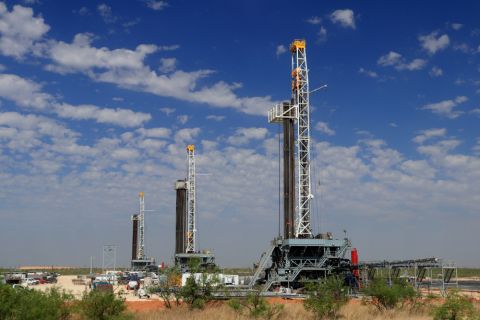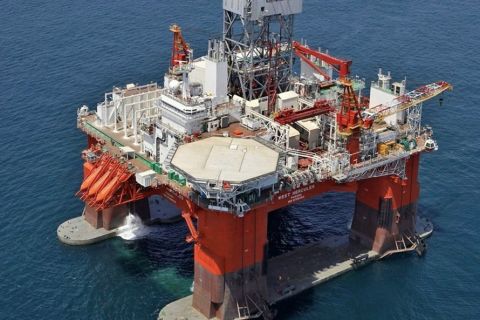OPEC oil output rose in August to its highest since April 2020, a Reuters survey found, although involuntary losses limited the gain as the group's top producers further eased supply curbs under a pact with its allies.
The Organization of the Petroleum Exporting Countries (OPEC) has pumped 26.93 million barrels per day (bpd), the survey found, up 210,000 bpd from July's estimate. Output has risen every month since June 2020, apart from in February.
OPEC and allies, known as OPEC+, have been easing record output cuts agreed in April 2020 as demand recovers. OPEC+ meets on Wednesday and, with oil up 40% this year at almost $73 a barrel, is expected to stick to its policy.
"Given the current level of oil prices and the possibility of increasing oil demand, OPEC+ is likely to adhere to its previous decision," an OPEC+ source told Reuters.
The OPEC+ agreement allows for a 400,000 bpd production increase in August from all members, of which 253,000 bpd is shared by the 10 OPEC members covered by the deal, OPEC figures seen by Reuters show.
While the 10 OPEC members raised output by more than this, OPEC as a whole has under-delivered on the expected month-on-month rise, the survey found. Members are still pumping less than called for under the latest deal.
The Reuters survey aims to track supply to the market and is based on shipping data provided by external sources, Refinitiv Eikon flows data, information from tanker trackers such as Petro-Logistics and Kpler, and information provided by sources at oil companies, OPEC and consultants.
OPEC compliance with pledged cuts was 115%, the survey found, a level unchanged from July.
Saudi, Iraqi boost
Saudi Arabia recorded the biggest increase of 180,000 bpd, as it further raised output as part of the August OPEC+ boost.
The second-biggest came from second largest producer Iraq, which boosted exports in August. Exports also rose in Angola, from a reduced level in July.
The United Arab Emirates added 40,000 bpd in line with its new quota, while output in Kuwait rose by 20,000 bpd.
Among countries with lower output, the biggest decline was in Nigeria, where output dropped by 100,000 bpd according to the survey. Exports from the Forcados terminal are under force majeure due to a leak, a source said on Aug. 15.
Iran, which has managed to raise exports since the fourth quarter despite U.S. sanctions, posted lower output this month, the survey found. The country is exempt from OPEC supply curbs due to the sanctions, and talks to revive its 2015 nuclear deal with world powers have stalled.
Among the other two producers exempt from curbs, Libyan output declined due to a pipeline leak, while Venezuela managed to pump slightly more.
Recommended Reading
Chevron Hunts Upside for Oil Recovery, D&C Savings with Permian Pilots
2024-02-06 - New techniques and technologies being piloted by Chevron in the Permian Basin are improving drilling and completed cycle times. Executives at the California-based major hope to eventually improve overall resource recovery from its shale portfolio.
TPH: Lower 48 to Shed Rigs Through 3Q Before Gas Plays Rebound
2024-03-13 - TPH&Co. analysis shows the Permian Basin will lose rigs near term, but as activity in gassy plays ticks up later this year, the Permian may be headed towards muted activity into 2025.
US Gas Rig Count Falls to Lowest Since January 2022
2024-03-22 - The combined oil and gas rig count, an early indicator of future output, fell by five to 624 in the week to March 22.
Orange Basin Serves Up More Light Oil
2024-03-15 - Galp’s Mopane-2X exploration well offshore Namibia found a significant column of hydrocarbons, and the operator is assessing commerciality of the discovery.
E&P Highlights: April 15, 2024
2024-04-15 - Here’s a roundup of the latest E&P headlines, including an ultra-deepwater discovery and new contract awards.




